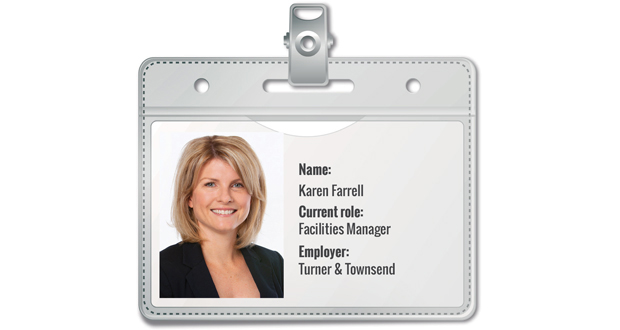Q: How did you progress through the profession to your current role?
I started my profession in facilities management as a temporary receptionist when I first moved to London from Australia 10 years ago. After two years of temping, I took on a permanent role working as an administrator within a facilities management and health and safety team. During this time, I completed my IOSH managing safely and risk assessment qualifications, including my DSE qualification. After four years, I decided that I wanted to take on more responsibility and took on a role as an Office & Facilities Manager for a publishing company. After almost two years, I out grew the role and was fortunate enough to be offered the role of Facilities Manager at Turner and Townsends global flagship office where I manage all aspects of their facilities services including leading a team of motivated individuals.
Q: What has changed about your job role since the COVID-19 crisis? E.g. home working, furloughed, redeployed?
Since the COVID-19 crisis hit, my team including myself have been furloughed. We have regular meetings and are kept up to date with how the business is doing via email and zoom meetings. As soon as we are in a position to reawaken the office, we will be required to ensure the office is operational before we start allowing people back in.
Q: What have you found most challenging about your job in FM since the lockdown?
Not being able to support employees during their working day. A big part of my role was ensuring that the working environment enabled employees to be productive. There is a lot more to working from home than just giving someone a laptop. You need to make sure that they are set up correctly, have the right equipment and are getting the right support so they don’t risk burn out.
Q: What qualities do you think are most needed for a successful career in FM?
The role of a facilities manager can be challenging and you need to be able to deal with difficult situations whilst maintaining your professionalism and integrity. Therefore you need to be resilient, adaptable, possess exceptional customer service skills, be a natural problem solver and willing to refine your skills through training and qualifications.
Q: What is your organisation doing to ensure the safe return of staff to the workplace?
Our organisation has carried out the required risk assessments and are putting in measures to ensure that everyone is safe when they return to the office. This includes additional sanitisation areas, contactless food and coffee ordering, two metre distancing for workstations and appropriate wayfinding around the office to ensure social distancing measures are adhered to.
Q: Are you a member of any FM association or body and if so what benefits do you think they provide?
I’m a member of IWFM and have recently been appointed Deputy Chair of Women in FM (WIFM). The benefits of being a member of IWFM are endless. You have access to good practice guides, white papers, webinars and training including numerous events throughout the year and networking opportunities. Becoming a member of IWFM was one of the best things I did when I was starting out in my career as it opened up numerous opportunities.
Q: Do you believe the pandemic has highlighted the important role of the FM sector and the part its people pay in keeping workers safe and buildings clean and maintained?
Historically people have underestimated the positive impact that facilities management can have on the workplace including organisational performance, and perhaps we as facilities managers have been shy about promoting ourselves and our profession. However, the pandemic has highlighted how essential we are to the workplace, in particular when it comes to keeping workers safe and buildings clean and maintained. As we return to work, facilities managers are going to play a key role in getting offices up and running and will be responsible for ensuring that the workplace remains operational and that high standards of cleanliness and infection control are maintained to ensure the workplace remains as safe as possible.
Q: What advice would you give to someone coming into the profession now?
Get a qualification. During these uncertain times, it’s important to upskill so that you remain competitive in the market. If you have been furloughed or made redundant, use this as an opportunity to get a qualification. This will give you a solid foundation, including a broader and deeper understanding and knowledge of the industry.
Q: What do you predict could be the main changes to the FM sector due to the impact of the Coronavirus pandemic?
The Coronavirus pandemic has been a catalyst for change when it comes to the workplace and this will have a direct impact on the facilities management industry. However, I believe the workplace is here to stay, and this is evident from the numerous surveys that have been carried out that illustrate that although employees would like to work from home, they also want to come into the office. I therefore think that the role of the facilities manager (in particular if you are in-house) will focus more on employee experience and wellbeing. The workplace will become a social hub, where employees go to reconnect with their colleagues and have a sense of community, and facilities managers will be responsible for cultivating a working environment that supports this. Finally, I think the perception of facilities management will also change including the acknowledgement and recognition for the importance of our industry.





